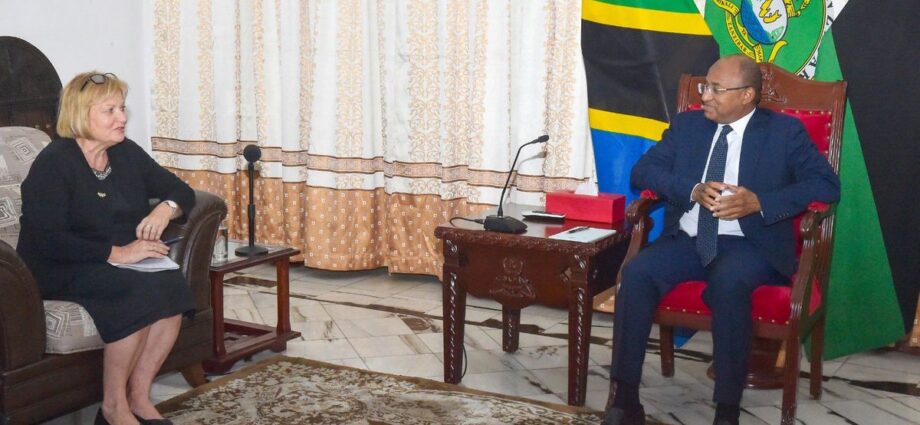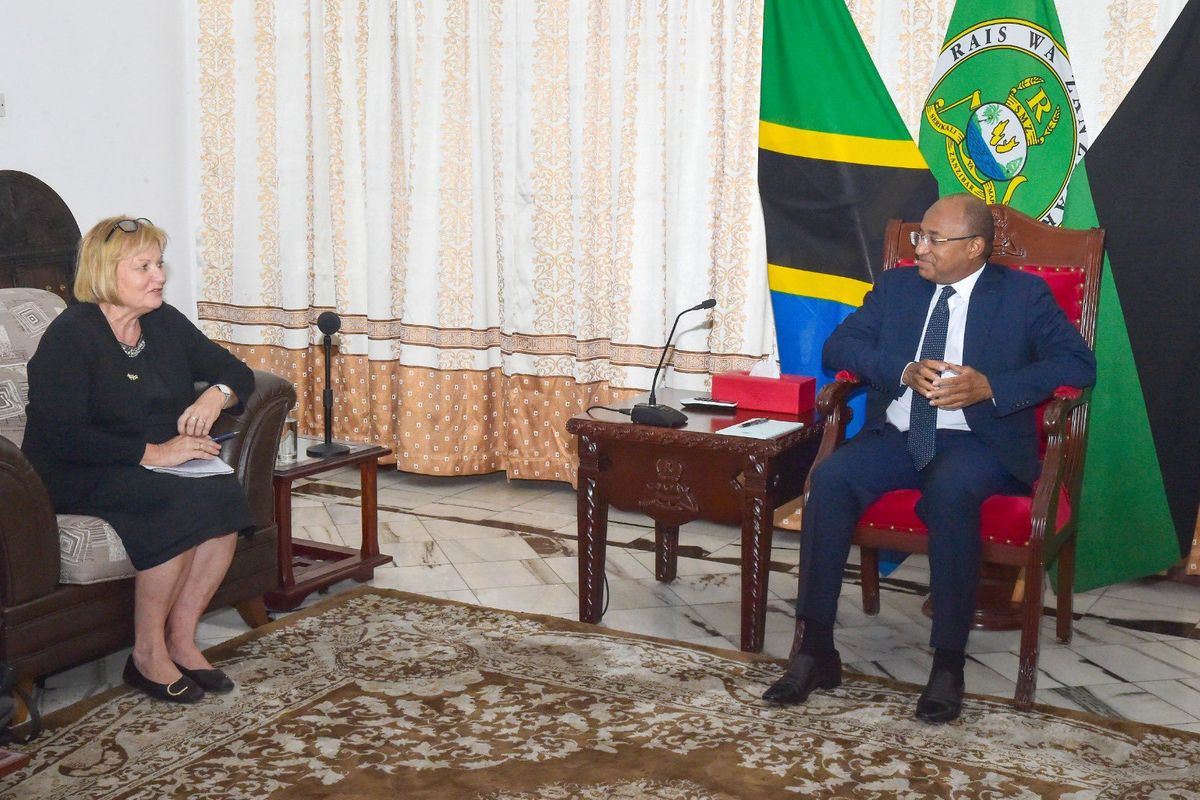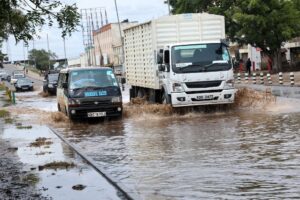Unguja. Norway has turned its attention to Zanzibar’s oil and gas sector, demonstrating a keen interest in investment opportunities while also extending support in vital areas such as electricity, healthcare, and environmental conservation.
The Norwegian Ambassador, Tone Tinnes, affirmed this commitment during a cordial meeting with Zanzibar President Hussein Mwinyi at the State House on Thursday, May 30.
She underscored the potential for a productive partnership aimed at fostering sustainable development across the Isles.
President Mwinyi disclosed the Zanzibar government’s ambitious plan to extend electricity supply to all villages in Unguja and Pemba islands to accelerate development activities in those areas.
A presidential communications statement released to the media affirmed that discussions revolved around four key areas earmarked for cooperation, with a strong emphasis on electrifying all villages.
Formally inviting Norway to explore investment opportunities in Zanzibar’s oil and gas sector, the President also highlighted the increasing levels of cooperation in the health sector.
He emphasised the importance of upgrading facilities at the Mnazi Mmoja Referral Hospital to enable the undertaking of heart surgeries once specialised personnel become available.
Additionally, he commended the ongoing collaboration on environmental issues.
President Mwinyi noted the fruitful partnership between Zanzibar and Norway, particularly in empowering women across various sectors, and expressed interest in exploring cooperation to develop Zanzibar’s seaweed farming industry in alignment with the blue economy policy.
With the blue economy at the forefront of the government’s efforts to stimulate economic growth, tourism currently accounts for 30 percent of the gross national income.
Ambassador Tinnes assured the President of enhanced cooperation with the Zanzibar Electricity Corporation (ZECO) in strategic projects, highlighting preliminary talks aimed at strengthening collaboration in that regard.
Collaboration between the Mnazi Mmoja Referral Hospital and Norway’s main hospital is also being strengthened to enhance expertise across various medical specialties.
This mirrors the partnership between the Zanzibar Revenue Authority (ZRA) and Norway’s primary tax institution, highlighting a broader spectrum of cooperation between the two nations.
Praising the remarkable progress achieved by the Zanzibar government over six decades of bilateral cooperation between Tanzania and Norway, Ambassador Tinnes emphasised the collaborative efforts of communities in addressing various economic and social challenges.















